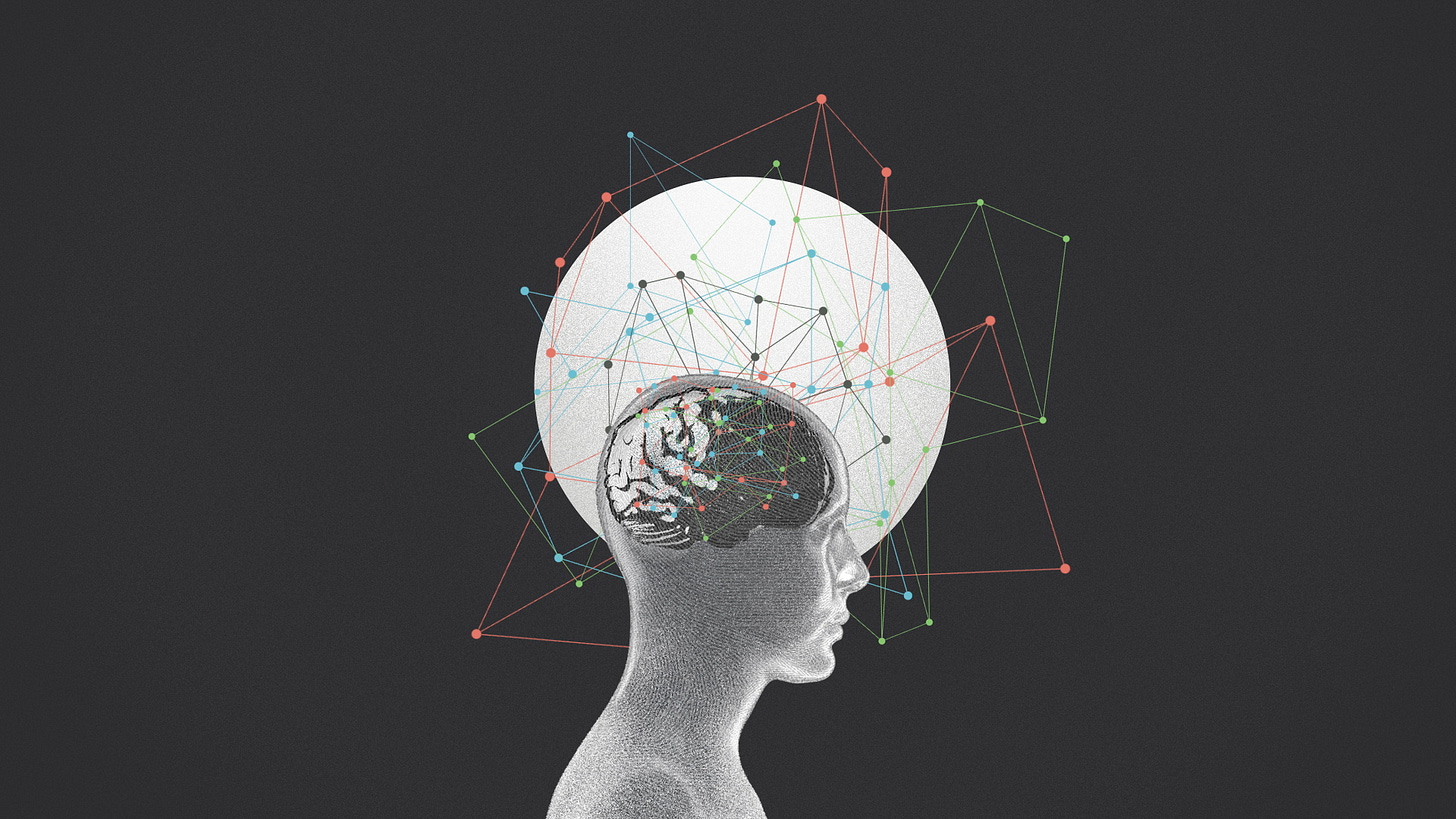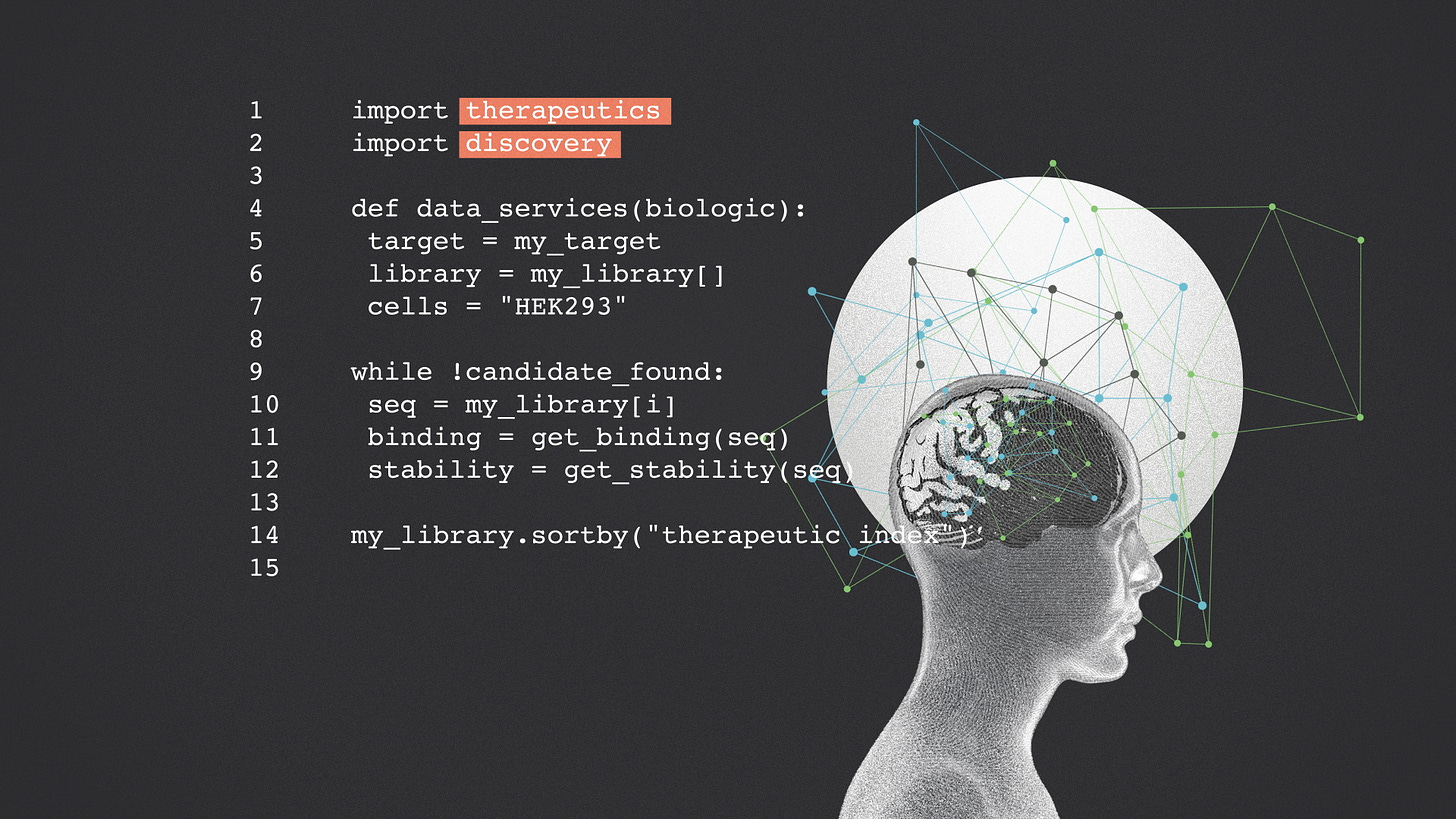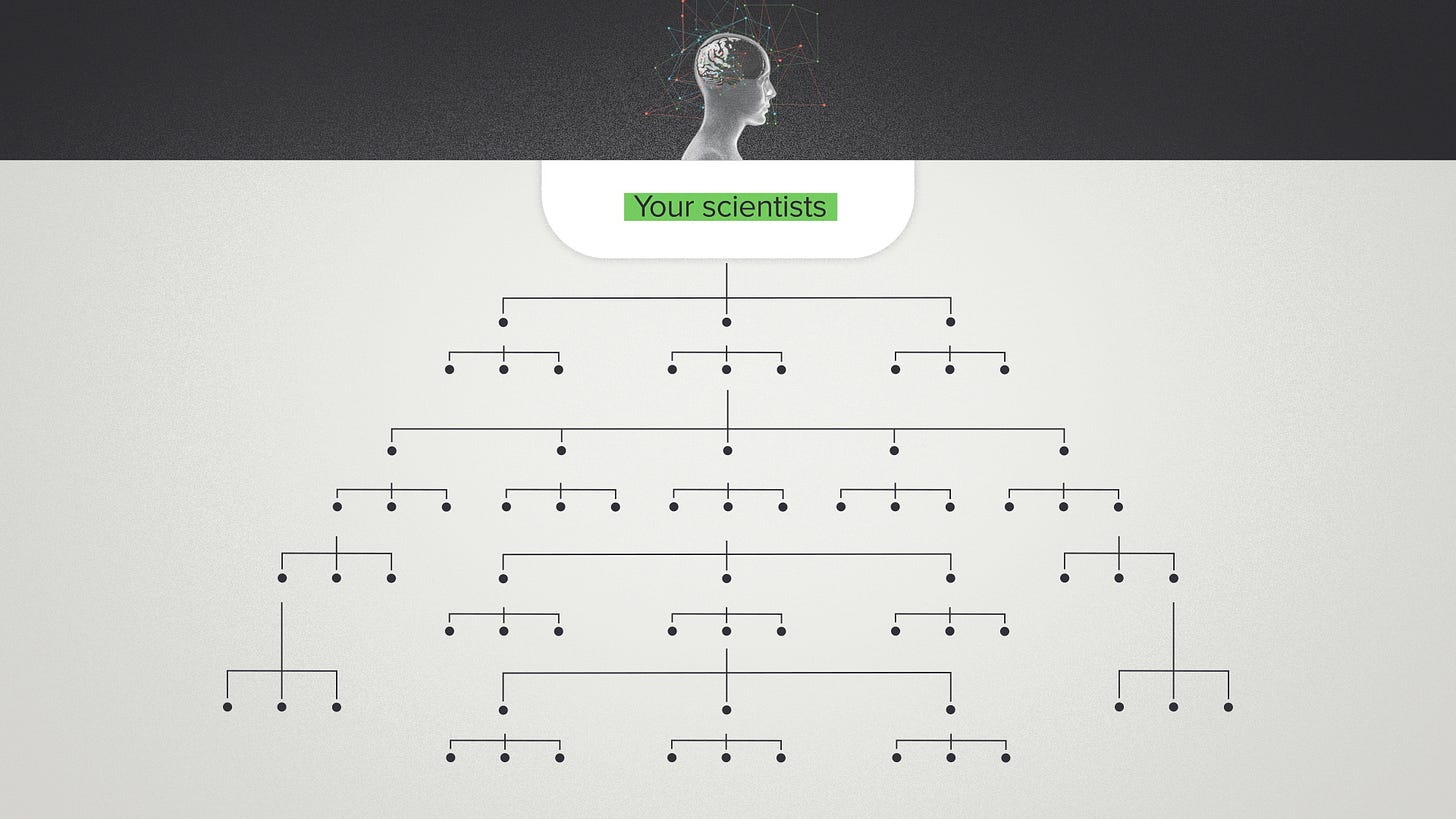Tacit Knowledge and the Partnering Problem in Biotech R&D
Sometimes your biggest problem in biology is that you’re too good at it. Today we’re talking about tacit knowledge and partnering in biotech R&D.
Transcript
A typical biotech project is organized around a human brain. And I mean one particular person's human brain. When we tell the story of innovation, the main character is usually a single biologist.
An academic lab has a primary investigator. A publication has a first author. An R&D team has a technical lead. A patent has an inventor.
This person doesn't necessarily mean to hog the spotlight. Good leaders, at least, will share the credit. One person can’t have all the good ideas. They can’t do all the work. Biotech is getting bigger, more multiplex, more specialized.
These trends aren’t going anywhere. So what’s the use of trying to keep one human in the driver’s seat? Well, I think it comes down to the value of tacit knowledge.
Tacit knowledge is anything that a person knows that is difficult to write down or explain. It’s the reason why you can’t learn biotech just from a textbook - you have to work in a real physical lab.
It's experience. It’s wisdom. It’s context-awareness. It’s the ability to remember a thousand tiny details over many years and connect them to the problem at hand. Biology is a particularly detail-rich field, so this ability is particularly critical.
Most of us have had the experience of working with someone who has the biotech superpower. Barbara McClintock, the Nobel-prize-winning geneticist, was said to have a “Feeling for the Organism1”. She described an “inner knowledge” that tells you when you're on the right track.
Because tacit knowledge is inner, it stays trapped within a single human brain. If you want to make the most of it, you need to build your R&D process around that reality, essentially by routing the data and decisions, as much as possible, through one person.
But working like this comes at a cost to collaboration. When you want to expand a project or bring in an outside partner, tacit knowledge is everything that is hard to explain. It requires extended conversations between experts and, because it is rooted in personal experience, experts don’t always agree.
Basically it’s the worst. So how do we fix it? How do we solve the partnering problem in biotech?
Option 1. Make biotech more like software. The opposite of tacit knowledge is probably a coding language. Everything about a function or an API is fully explicit and documented. Because of this, software development projects are easier to decouple from the limitations of any one person. They can be very large collaborations involving programmers with diverse specialties and require relatively little face-to-face communication.
I'd love to see biotech move in that direction. But honestly, I think tacit knowledge is just a fact of life science and I don’t think we should aspire to eliminate it completely. I'd rather try to maximize the value of human expertise than try to engineer around it.
Option 2. Do fewer, larger partnerships. At Ginkgo, this is the value proposition for what we call end-to-end cell engineering solutions. That tacit knowledge transfer only has to happen once. Your experts explain to us what you need from an engineered microbe, a protein biologic, an RNA therapeutic, or whatever else is in those beautiful brains. We bring together all the capabilities to execute that vision in a single, centralized place. Your experts get a single point of contact.
Option 3. Look for the natural connection points in a biotech R&D project where knowledge transfer can be relatively simple and explicit. One example is high-throughput data generation. Lead scientists are used to directing their internal teams to produce new datasets and to analyzing data that comes from outside teams
Biology already has a relatively robust language for describing protocols and annotating data. It’s not as clear as computer code, but it moves pretty easily from one human brain to another.
Ginkgo's Lab Data as a Service offerings are designed to connect to your R&D project at this point. The tacit knowledge stays entirely with your team. You design the dataset. You keep all the IP. Ginkgo executes the data generation. In the best case, the data should be as transparent to your experts as if it had come from their own hands.
All my biotech heros have the superpower of tacit knowledge. There's a lot of Barbara McClintocks out there, technical leaders with a feeling for the organism, who could be more impactful if we can make partnering more efficient for them. The Ginkgo foundry is leverage for their human brains.
“A Feeling for the Organism: The Life and Work of Barbara McClintock” by Evelyn Fox Keller





